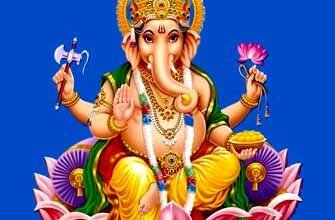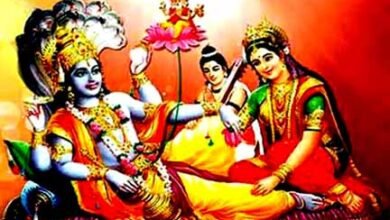
‘स्वाहा’ क्यों कहते हैं…?
यज्ञ या हवन के दौरान आपने देखा होगा कि आहूति देते समय ‘स्वाहा’ का उच्चारण होता हैं. क्या आप जानते हैं कि इसका अर्थ क्या होता है, और क्यों “स्वाहा” ही कहा जाता है. दरअसल, ऋग्वैदिक काल में इंसानों और देवताओं के बीच मध्यस्थ के रूप में अग्नि को चुना गया था. उसके तेज में सब कुछ पवित्र हो जाता है. माना जाता है कि देवताओं को समर्पित की गई वस्तु अग्नि में डालने पर, वह उन तक पहुंच जाती है. लेकिन, ऐसा तभी संभव हो सकता है, जब उसके साथ ‘स्वाहा’ बोला जाता है.
’स्वाहा’ का अर्थ होता है, सही रीति से आवश्यक भौतिक पदार्थ को उसके प्रिय देवता तक पहुंचाना. ऋग्वेद, यजुर्वेद आदि वैदिक ग्रंथों में भी अग्नि की महत्ता पर कई सूक्तों की रचनाएं हुई हैं. इसके अलावा श्रीमद्भागवत और शिव पुराण में ‘“स्वाहा’” से संबंधित वर्णन भी किया गया है. पौराणिक कथाओं के अनुसार, ‘“स्वाहा’” प्रजापति दक्ष की पुत्री थीं. उनका विवाह अग्निदेव के साथ हुआ था. अग्निदेव को ‘भविष्यवाहक’ भी कहा जाता है, और वह उसे अपनी पत्नी ‘स्वाहा’ के माध्यम से ही ग्रहण करते है.
अन्य मान्यताओं के अनुसार, ‘स्वाहा’ प्रकृति की ही एक कला थी, जिसका विवाह अग्नि के साथ देवताओं के आग्रह पर सम्पन्न हुआ था. भगवान श्रीकृष्ण ने स्वयं ‘“स्वाहा’” को ये वरदान दिया था कि केवल उसी के माध्यम से देवता भविष्य को ग्रहण कर पाएंगे. यज्ञ तभी पूरा माना जाता है कि आहुति के जरिए देवता को उनकी पसंदीदा भोग पहुंचा दिया जाए. इसमें मीठा शामिल होना अनिवार्य होता है, तभी देवता प्रसन्न होते हैं. सभी वैदिक व पौराणिक विधान अग्नि को समर्पित मंत्रो एवं आहुति के द्वारा हविष्य सामग्री को देवताओं तक पहुंचने की पुष्टि करते हैं.
========== ========== ==========
Why is it called ‘Swaha’…?
During Yagya or Havan, you must have seen that ‘Swaha’ is pronounced at the time of oblation. Do you know what it means, and why it is called “Swaha”? In fact, in the Rigvedic period, Agni was chosen as the mediator between humans and the gods. Everything becomes sacred in its glory. It is believed that when the object dedicated to the gods is put in the fire, it reaches them. But, this can be possible only when “Swaha” is spoken with him.
“‘Swaha'” means to deliver the necessary material things to one’s beloved deity in the right way. In Vedic texts like Rigveda, Yajurveda, etc. many hymns have been composed on the importance of fire. Apart from this, a description related to “Swaha” has also been given in Shrimad Bhagwat and Shiv Puran. According to mythology, “Swaha” was the daughter of Prajapati Daksha. He was married to Agnidev. Agnidev is also called ‘Bhavishyavahak’, and he receives it only through his wife ‘Swaha’.
According to other beliefs, ‘Swaha’ was an art of nature itself, whose marriage was completed with Agni at the request of the gods. Lord Krishna himself had given this boon to “Swaha” that only through him the gods would be able to accept the future. Yagya is considered complete only when the deity is offered his favorite bhog through the oblation. It is mandatory to include sweets in it, only then the gods are pleased. All the Vedic and Puranic laws confirm that future material reaches the deities through mantras and oblations dedicated to Agni.





